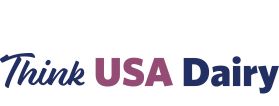Sustainability & Stewardship
Dairy Cows: The Original Upcyclers
A single U.S. dairy cow produces an average of 144 servings of milk per day (250 ml per serving) that contain key nutrients essential to human health such as calcium, vitamin D, potassium and protein.
To maximize nutrition, U.S. dairy cows eat a specially designed diet formulated to provide optimal nourishment while also providing benefits across the food chain. Cows' ability to process materials that humans can't digest, like byproducts from food processing such as citrus pulp and almond hulls, minimizes the waste associated with food production. Watch this video to see specific examples of Upcycling.

Animal Care
Small and large, 95% of U.S. dairy farms are family-owned and operated businesses that care about providing the best products possible to families everywhere. One of their main priorities is the health and safety of their cows-the biggest driver of their business.
98% of U.S. milk comes from dairies participating in Farmers Assuring Responsible Management (F.A.R.M.) Animal Care, the first livestock animal care program in the world to be recognized by the International Organization for Standardization. Learn more about the Innovation Center for U.S. Dairy's on-farm resources, initiatives and standards here.
